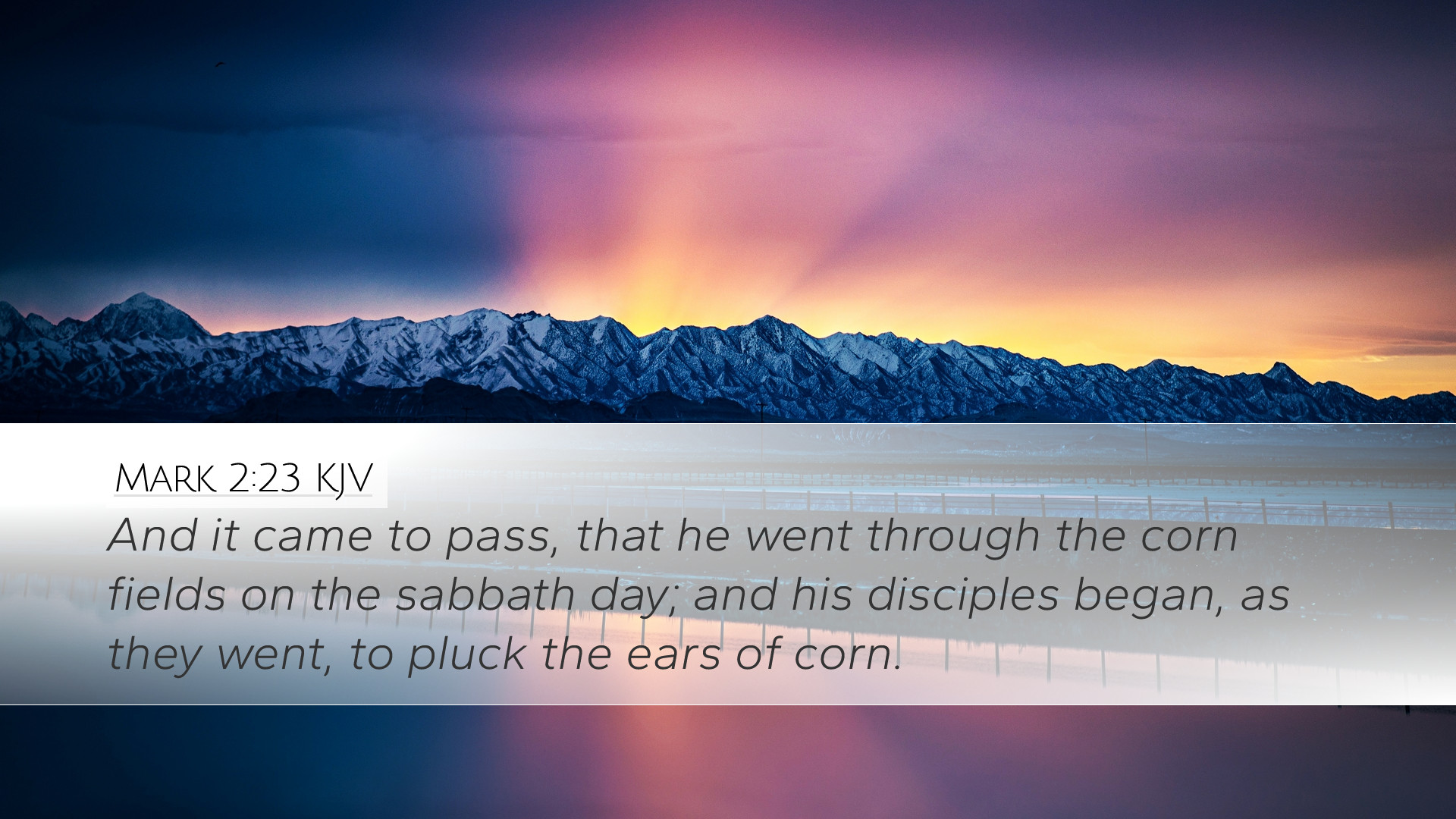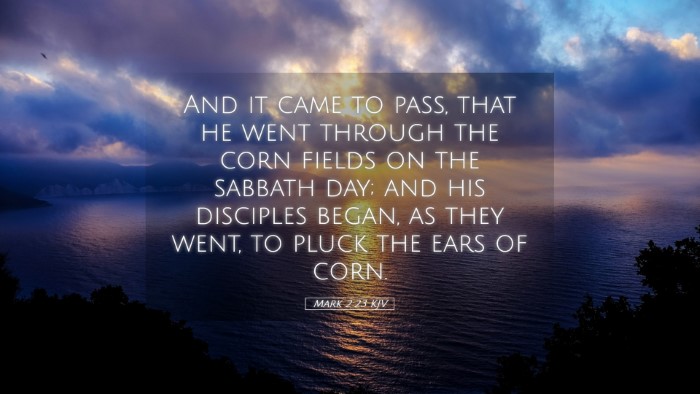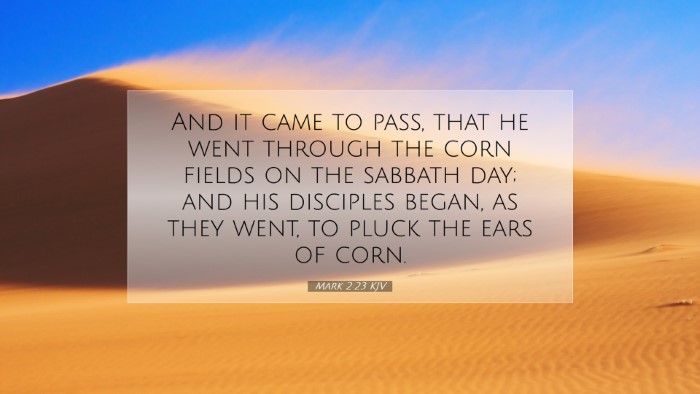Old Testament
Genesis Exodus Leviticus Numbers Deuteronomy Joshua Judges Ruth 1 Samuel 2 Samuel 1 Kings 2 Kings 1 Chronicles 2 Chronicles Ezra Nehemiah Esther Job Psalms Proverbs Ecclesiastes Song of Solomon Isaiah Jeremiah Lamentations Ezekiel Daniel Hosea Joel Amos Obadiah Jonah Micah Nahum Habakkuk Zephaniah Haggai Zechariah MalachiMark 2:23
Mark 2:23 KJV
And it came to pass, that he went through the corn fields on the sabbath day; and his disciples began, as they went, to pluck the ears of corn.
Mark 2:23 Bible Commentary
Commentary on Mark 2:23
Verse Text: "And it came to pass, that he went through the corn fields on the sabbath day; and his disciples began, as they went, to pluck the ears of corn."
Introduction
This verse presents a scene in which Jesus and His disciples engage in an act that raises questions about the observance of the Sabbath. To understand this passage fully, we must consider the context, the cultural significance of the Sabbath, and the theological implications embedded within this narrative.
Contextual Analysis
The setting of this passage is essential. The disciples are walking through grain fields—this activity suggests movement and action on a day traditionally reserved for rest. The Pharisaic interpretation of the Sabbath had become rigorously legalistic by this time, emphasizing strict adherence to the law without understanding the heart of the law, which was intended for rest and worship.
Commentary Insights
-
Matthew Henry:
Henry emphasizes the contrast between divine intention for rest and the burdensome tradition that had developed alongside the Sabbath laws. He points out that the disciples' action, while seemingly problematic, reveals deeper truths about the spirit of the law versus the letter of the law.
-
Albert Barnes:
Barnes highlights that the act of plucking grain, though a violation of rabbinical traditions, was allowable under the Mosaic Law, which permitted one to eat food while traveling. This commentary emphasizes the understanding of necessity and the principle that human life isn’t meant to be enslaved to mere ritual.
-
Adam Clarke:
Clarke provides a detailed cultural insight, noting that during the harvest, it was common for travelers to eat from the fields. This practice reflects God’s provision and mercy. It is essential to recognize that the disciples’ act is rooted in survival rather than deliberate transgression of the Sabbath.
Theological Reflections
This passage holds significant theological weight as it invites readers to reflect on the nature of true rest and worship. Jesus, the Lord of the Sabbath, invites us into a redefined understanding of what it means to observe the Sabbath in a holistic sense—prioritizing mercy, need, and the heart of worship.
The Nature of the Sabbath
The Sabbath was instituted as a day of rest, reflecting God's own rest after creation (Genesis 2:2-3). However, the interpretation and practical observance had drifted from its intended purpose. This verse illustrates that the Lord of the Sabbath, Jesus Himself, challenges these human impositions. The actions of the disciples indicate a need for food, highlighting that mercy and necessity should have precedence over rigid adherence to tradition.
Practical Implications for Ministry
For pastors and theologians, understanding this passage encourages a respectful yet challenging examination of congregational practices surrounding the Sabbath and worship. It fosters discussions on balancing tradition with love, mercy, and community needs, offering enriched perspectives on ministry.
Conclusion
The act of the disciples plucking grain reflects a deeper theological principle: Jesus redefines the Sabbath from a burden to a blessing. The essence of the Sabbath encompasses both physical and spiritual renewal, calling believers to find true rest in Him. As ministers and scholars, embracing this lesson must drive our understanding of how we lead, serve, and engage with our communities in light of Christ’s teachings.


